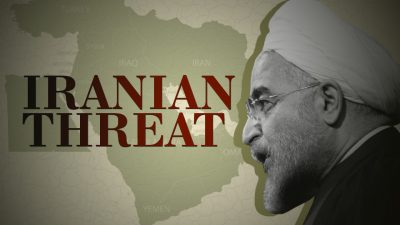Iran Is Falling into the Nuclear Deal Trap, Déjà Vu

All Global Research articles can be read in 51 languages by activating the “Translate Website” drop down menu on the top banner of our home page (Desktop version). Visit and follow us on Instagram at @crg_globalresearch.
***
The nuclear deal with Iran, the so-called Joint Comprehensive Plan of Action (JCPOA), turned out to be an unprecedented agreement in the history of diplomacy. An ad hoc group of countries: the U.S., Britain, France, China, Russia, and Germany (5+1), which is not a legal entity and does not have any legal authority, imposed this agreement on the sovereign nation of Iran.
The United States has used the Treaty on the Non-Proliferation of Nuclear Weapons (NPT) as an excuse to punish Iran for violating some aspects of the Treaty. Although Iran has the right to develop nuclear technology for peaceful purposes under Article IV of the NPT, it is argued that Iran has not adequately disclosed its past nuclear activities, and therefore it is not in good standing with the Treaty. According to Article VI of the NPT, the nuclear states are obligated to move toward “complete disarmament under strict and effective international control.”[1]
The nuclear states, however, have violated Article VI, and there is no organization to force them to comply with the Treaty. The JCPOA had been initially drafted by a private think tank organization in the U.S., well ahead of the time to be “negotiated” with Iran, and was agreed on by a group of young Iranian diplomats headed by Iran’s Foreign Minister Javad Zarif. These diplomats had worked in Iran’s diplomatic mission in New York before becoming members of President Hassan Rouhani’s administration. The Iranian parliament did not review or approve of this agreement; it only permitted the agreement to be voluntarily implemented in October 2015.
Nevertheless, President Trump withdrew from the deal in May 2018 and reimposed sanctions on Iran. If the deal had gone forward, the U.S. and its Western allies would have controlled some critical sectors of Iran’s economy, science, and defense, and that would have continued for 10 to 25 years and even forever. Fereydoun Abbasi, the head of the Energy Commission of Iran’s parliament, who wants to be a presidential candidate next month, believes the nuclear deal has been a disaster for Iran.[2] Abbasi is a nuclear scientist and was a target of an unsuccessful assassination by foreign agents in 2010 and later became head of the Atomic Energy Organization of Iran.
After President Trump’s withdrawal from the agreement, despite the sanctions, Iran gradually abandoned the restrictions imposed on it under the JCPOA and began to restore its nuclear program. In December 2020, Iran’s parliament approved a law that required the government to end all restrictions on its nuclear program if the U.S. sanctions were not completely lifted within three months.[3]
When President Joseph Biden came to the White House on January 20, 2021, he said he would relieve the maximum pressure policy imposed on Iran by Trump’s administration. He intended to return to the nuclear deal if Iran agreed to comply with the agreement, and then the nuclear-related sanctions would be lifted. Iran responded it would not honor the nuclear deal unless all the sanctions were lifted entirely at once and the lifting of the sanctions could be verified in action. Biden nominated Antony Blinken as his Secretary of State.
While being confirmed as the U.S. Secretary of State in January 2021, Blinken told the Senate he wanted a “longer and stronger” nuclear agreement with Iran.[4] Blinken previously had said that negotiations regarding Iran’s missiles had to be the additional condition for the U.S. return to the JCPOA.
Efforts to Reimpose an extended Nuclear Deal
Now, it looks like an extended version of the defunct agreement is re-written with additional demand and restrictions to be reimposed on Iran. In February 2021, the European leaders offered an “informal meeting” between the U.S. and the Iranian side. Iran rejected the offer to hold direct nuclear talks with the U.S.[5] In early April, Iran began negotiations with Britain, France, Germany, Russia, and China, and indirectly with the U.S., to revive the nuclear deal.[6] The third round of negotiations ended on April 30 in Vienna. There are now efforts to finalize the negotiations by the parliament deadline on May 21, 2021. As of this writing, the talks regarding the lifting of the sanctions are continuing.
While an agreement has not been reached to this date, it appears Washington is demanding more concessions from Iran. Despite the assassination of Iran’s nuclear scientists and the top military leader General Qhasem Soleimani and repeated sabotage of Iran’s nuclear facilities, it seems the clerics in Tehran are still willing to negotiate and give more concessions to the U.S. for the lifting of the sanctions. Nonetheless, Iran should remain steadfast and insist on its sovereign right to promote its civilian nuclear program.
*
Note to readers: Please click the share buttons above or below. Follow us on Instagram, @crg_globalresearch. Forward this article to your email lists. Crosspost on your blog site, internet forums. etc.
Akbar E. Torbat ([email protected]) is the author of “Politics of Oil and Nuclear Technology in Iran”, Palgrave Macmillan, (2020), https://www.palgrave.com/gp/book/9783030337650 . He received his Ph.D. in political economy from the University of Texas at Dallas.

